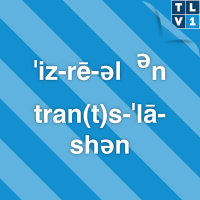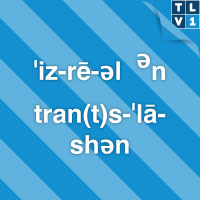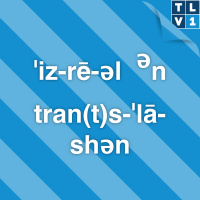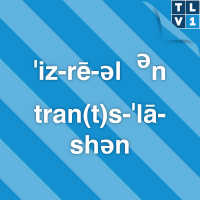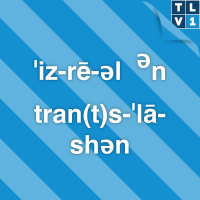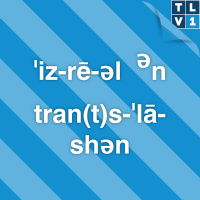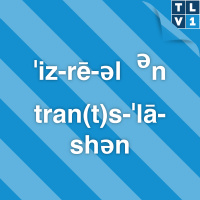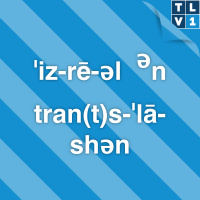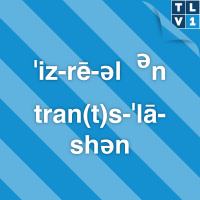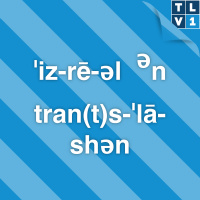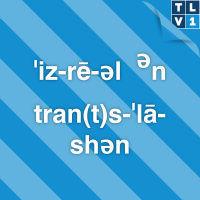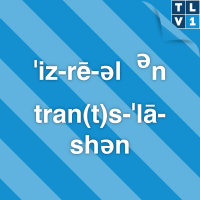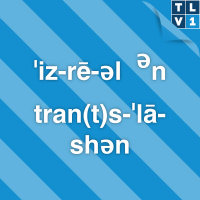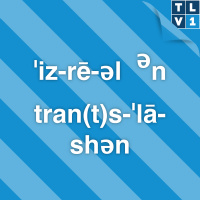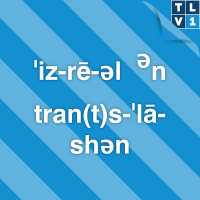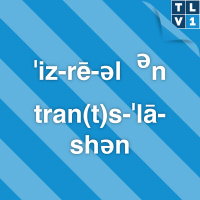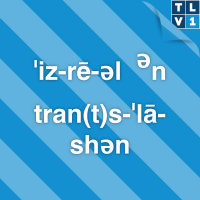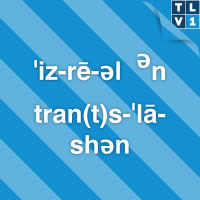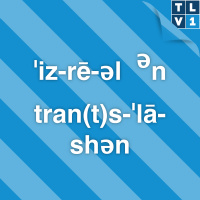Synopsis
Exploring Israeli literature in English translation. Host Marcela Sulak takes you through Israels literary countryside, cityscapes, and psychological terrain, and the lives of the people who create it.
Episodes
-
"The Secret Life of Saeed the Pessoptimist"
22/02/2017 Duration: 09minOn this week's episode, host Marcela reads from Emile Habibi’s picaresque novel The Secret Life of Saeed The Pessopitmist, translated by Salma K Jayyussi and Trevor LeGassick. The Secret Life of Saeed spans twenty years and two wars (1948 and 1967) and is an account of the life of the Palestinian Arab population which remained in the State of Israel after the mass exodus following each war. Saeed is a comic hero, the luckless fool, who has been compared to Voltaire’s Candide and Hasek’s Good Soldier Svejk. This is an exerpt from “Research on the Origins of the Pessoptimists”: "When I alighted from the donkey, I found that I was taller than the military governor. I felt much relieved at being bigger than him without the help of the donkey’s legs. So I settled comfortably into a chair in the school they had converted into the governor’s headquarters. The blackboards were being used as Ping-Pong tables. There I sat, at ease, thanking God for making me taller than the military governor without the help of the do
-
Writing on the walls of Musrara
15/02/2017 Duration: 09minOn this week's episode, host Marcela Sulak takes us on a small excursion to Musrara, a neighborhood in Jerusalem, with poems by Liat Kaplan as our guide. Musrara was founded by upper class Christian Arabs in the late 19th century when people began to live outside the Old City of Jerusalem. During the War of Independence, the residents fled or were expelled. The neighborhood - inhabited by new olim from North Africa -was frequently exposed to snipers until 1967. In 1971, a second generation of Mizrahi Jews founded the Israeli Black Panther movement in the town. Today, the neighborhood is a symbol for the city's complexity and home to a vibrant cultural center. This is an exerpt from Kaplan's poem On What is Outside the Photograph: "When photographed, Mussrara is almost composed of the sum of her details, various types of enclosures: asbestos, containers, radiance among leaves, cages, barriers, plants, walls, trees, bushes. Doors, partitions, trapped sun rays, fences and cracks, ramparts, balconies, roofs. Cac
-
The fig tree with gnats: A short story by Avner Shats
08/02/2017 Duration: 08minOn this week's episode, host Marcela Sulak reads a selection of Avner Shat's short story, "Figs," which was published in his first book, Printed Circuits in 1994. Here is an excerpt from the story: "The years went by, and not a single daughter came to the world. The women were getting older, fewer babies were born, and I was the last girl born here. There is no girl younger than me in the village, no sister nor niece, and today I shall marry a man, and no one is really sure whether to be happy or sad, for no one ever heard of such a thing, not even the army and the other people who came with it, those who wear no uniforms and walk around the village asking silly questions, those who erected a tent like nomads, with bizarre instruments in it, so my aunt says, where they cure people by pricking them or feeding them bitter hard beans, and request you to do odd things and movements and to answer questions about drawings, and even those knowledgeable people have never heard of a wonder such as ours, a place wher
-
At the End of Sleep, between worlds
01/02/2017 Duration: 06minOn this week's episode, host Marcela Sulak reads selections of poet Tal Nitzán's book At the End of Sleep. It's an anthology of her poems, translated from the Hebrew by Tal Nitzán, Vivian Eden, Irit Sela, Aliza Raz, and Rachel Tzvia Back. Here is an excerpt from her poem "In the Time of Cholera": "Facing one another we turn our backs to the world’s calamities. Behind our closed eyes and curtains, both heat and war erupted at once. The heat will calm down first, the faint breeze won’t bring back the boys who have been shot, won’t cool down the wrath of the living. Even if it tarry, the fire will come, many waters won’t quench, etc. Our arms as well can only reach our own bodies: We are a small crowd incited to bite, to cling to each other, to barricade ourselves in bed while in the ozone above us, a mocking smile cracks wide open." Nitzan’s poems are often concerned with the discrepancies between the domestic and internal world, and the injustice of the exterior world in which the most private bodies are pla
-
Ibn Gabirol, Vulture in a Cage
25/01/2017 Duration: 08minOn this week's episode, host Marcela Sulak returns to the work of Ibn Gabirol, one of the outstanding figures during the Jewish Golden Age in Moorish Spain. She reads a new edition of his work called Vulture in a Cage, published in 2016 by Archipeligo Books. The translation by Raymond P. Scheindlin interestingly adheres to Gabirol's original rhyme scheme and rhythm of the Hebrew. Here is an excerpt from one of his poems depicting the relationship between God and the speaker as an erotic relationship: "Greetings to you, red-cheeked friend, greetings to you from the girl with the pomegranate brow. Run to meet her—your beloved— hurry out to rescue her! Charge, like David, valiant king when he took Rabbah, the city.” He: “Why, my beauty, why just now do you choose to rouse my love, set your lovely voice to ringing like a priest’s robe hung with bells? When the time for loving comes, then you’ll see me hurrying. Then I will come down to you as on Mount Hermon drips the dew." Born in Málaga in about 1022, Ibn Gab
-
On childhood to parenting, through space and time
18/01/2017 Duration: 09minOn this week's episode, host Marcela Sulak reads poetry by Maya Tevet Dayan. Published in both Rachel Tzvia Back's translation and forthcoming translation by Ayelet Rose, they are Dayan's first poems to appear in English. Born in Tel Aviv, Maya Tevet Dayan grew up in Hod Hasharon and received her Ph.D at Tel Aviv University. Dayan's landscapes, covering childhood to adulthood and parenting, are characterized by attention to time and space. Here is a segment from her poem, Tides. "Through all the births, through all the women who birthed one another until you were born, This pre-historic fear has now passed on o you, the fear that must never be named. Forming ripples in the dark. You're in the living room, in the empty moon, in abandonment, the child moves in her sleep, the dog is circling the kennel. If ever there was a critical time to caress a dog, that time is now." Text: “Sister” and “Hallow’s Eve” in Modern Poetry in Translation, summer issue 2016. Translator: Rachel Tzvia Back Other poems translated b
-
Traveling in psalms with Yonatan Berg
11/01/2017 Duration: 09minOn today's episode, host Marcela Sulak reads the work of Yonatan Berg. He is youngest recipient ever to win the Yehuda Amichai Poetry Prize, and his work has only begun to be published in Joanna Chen’s English translation. As Chen points out, Yonatan Berg’s poetry strides the lines that divide this country in so many ways, with honesty and compassion. "On Sabbath afternoon the air is quiet. We stroll towards the Sephardi synagogue, the hills filled with afternoon and beyond, the Dead Sea shimmers, burning with salt, thick with death. Rabbi Avi Sasson stands before us, his voice filling the curves of the stone with psalms. We sit down. Summer switches off and we give ourselves to the same cave where praises cover the decay of our lives – our parents arguing, journeys through Ramallah, the idea that around us hangs a permanent, burning growl of injustice: the shifting of Israel and Palestine’s tectonic plates." Yonatan Berg was born in 1981 in Jerusalem to a religious family and grew up in Psagot, a settlemen
-
Revisiting Yoram Kaniuk, Between Life and Death
04/01/2017 Duration: 08minOn today's episode, host Marcela Sulak reads Between Life and Death, the final novel of Yoram Kaniuk, who died in 2013. The celebrated book is a type of auto-fiction in which real life and memoir blend with style and language and humor. It's a stream of consciousness journey that takes place when the narrator, also named Yoram Kaniuk, lies in coma after surgery. "After these things—after disease and after death and after pain and after laughter and after betrayal and after old age and after grace and love and after a foolish son the heaviness of his mother and a woman of valor who stayed with me in beauty in the abyss—after all that I woke up into a half sleep and stayed there four months. And it was bad and it was good and it was sad and it was lost and it was a miracle and it was what it was and it wasn’t what it wasn’t and it could have been and I recalled it was night. A night sealed up in its night. I spent it in bad dreams and woke up dazed with sleep, I was healthy, in my house at 13 Bilu Street, and
-
Where Jesus walked, told through 'Arabesques'
28/12/2016 Duration: 08minThis week we're broadcasting a timely re-run of a past episode. As Christians all over the world celebrate Christmas, we travel to the Galilee through the eyes of the novelist Anton Shammas, a native of the Galilee. In honor of Nazareth, the childhood home of Jesus, host Marcela Sulak reads three excerpts from Shammas' novel Arabesques, which has been called, “a history of its author’s youth and the memoir of a family and a fabled region - Galilee.” One of the most striking features of the novel is how the life of Jesus and the miracles of Nazareth are woven into the fabric of daily life. All this against the backdrop of Christmas songs sung by Fairuz, one of the most respected and admired Lebanese singers alive. Text: Arabesques, by Anton Shammas. Translated by Vivien Eden. New York: Harper & Row, 1988. Music:I Believe - lyrics by Ervin Drake, Irvin Graham, Jimmy Shirl and Al Stillman in 1953. Sung by Fairuz. Talj Talja [Snow, Snow] - Fairuz Silent Night - Fairuz
-
Brimming with kisses: Poetry by Hadas Gilad
21/12/2016 Duration: 06minOn today's episode, host Marcela Sulak reads the poetry of Hadas Gilad, all translated by Lisa Katz. Hadas Gilad was born in Tel Aviv in 1975. She has published one book of poems, "Each and Every Light," and has translated the poetry of Lalla, a 14th century Hindu mystical poet from Kashmir. "His lips - a soft gate Yes a hedgerow And I was drawn between them to roar within To be close to his voice To reside like this: In the darkness of the cave To hear the taps of swallowed saliva To hear the birth of each syllable To hear the shouts of joy." Sociologist and Jungian Analyst Guy Perl notes the influence of Lalla on Gilad's poetry. He says that both poets "attempt to remove the illusion that reality is separate from nature [or] God..." However, he adds, "Gilad doesn't seek to rise above the illusion of reality, but rather to live completely connected to it, revealing its transcendent aspects..." Text: Tamir Greengerb. “Ode” and “My Grandma Rachel, Age 15” in Poets on the Edge. An Anthology of Contemporary He
-
In the dim wine cellar: Poems by Tamir Greenberg
14/12/2016 Duration: 06minOn today's episode, host Marcela Sulak reads poems about death and dying by Tamir Greenberg, translated by Tzippi Keller and found in Keller's anthology, Poets on the Edge. An Anthology of Contemporary Hebrew Poetry. Here is an exerpt from Greenberg's poem My Grandma Rachel, Age 15: "'Soon, my shadow will strike a small pile of snow, and then I’ll turn fifteen.' 'Sheets,' says the nurse impatiently. 'A pile of sheets.' 'Marius, my love, will come to meet me near the fence of the high-school for girls in Bucharest.' Grandma laughs. I was there already years ago. It was before my shadow refused to freeze on a small pile of snow, and when my love kissed me, his sweet kiss blossomed into my body like a rose petal, and later, in my father’s wine cellars, in the dim wine cellar, Marius threw me to the floor, and when he tore my virginity my right hand truck the tap of a barrel and wine oozed onto the filthy floor.' Tamir Greenberg was born in Tel Aviv in 1959, and heads the Architecture Department at Shenkar Coll
-
Raise the roof
07/12/2016 Duration: 07minOn today's episode, host Marcela Sulak reads from David Grossman's newest work, A Horse Walks Into a Bar, which came out in Jessica Cohen's English Translation last month with Jonathan Cape Books in London. The exerpt from the short novel is set in a comedy club in Netanya: "But until midnight… we will raise the roof with jokes and impersonations, with a medley of my shows from the past twenty years, as unannounced in the advertisements, ‘cause it’s not like anyone was going to spend a shekel to promote this gig except with an ad the size of a postage stamp in the Netanya free weekly. F**kers didn’t even stick a poster on a tree trunk. Saving your pennies, eh, Yoav? God bless you, you’re a good man. Picasso the lost Rottweiler got more screen time than I did on the telegraph poles around here. I checked, I went past every single pole in the industrial zone. Respect, Picasso, you kicked ass, and I wouldn’t be in any hurry to come home if I were you. Take it from me, the best way to be appreciated somewhere is
-
"At the edge of a thick forest"
30/11/2016On today's episode, host Marcela Sulak reads from Annna Herman's books "Unicorn" and "The Book of Simple Medicines." They are translated by Adriana X. Jacobs, who finds that "In Herman's work, the comfort of rhyme and meter provide a meaningful contrast to the uncomfortable and disquieting tales and images that Herman composes." "At the end of the blocked path, at the edge of a thick forest, There's a house caught between two flickering flames. Like Red Riding Hood I walk through the dim forest, To my grandmother's house, and the snow falls again. I walk up to the edge of the dead end, to the edge of pain, And under each and every step fear lurks like a wolf. In the gap between the closed window and the shifting drape Churns the story that lives in this house and was sketched On a metal box I once bought - a colorful, peeling case - Telling the tale of the girl with the red cape." About her own writing, Anna Herman has said "My difficulty is in the possibility of my goal, for example, to use words to expres
-
Life on the kibbutz: A memoir by Yael Neeman
23/11/2016 Duration: 09minOn today's episode, host Marcela Sulak reads from the opening of Yael Neeman's 2011 lyrical memoir about life on kibbutz Yehiam in the Galil. It's called "We Were The Future: A Memoir of the Kibbutz," and it came out in October of this year in Sondra Silverston's English translation: "And they were really the best years of our lives, dipped in gold, precisely because we lived in below-zero temperatures in the blazing heat of an eternal sun. We greeted each new day with eagerness and curiosity. We were wide awake in the morning and wide awake at night. We skipped and ran from place to place, our hands stiky with pine tree resin and fig milk. We were so close to each other, all day and all night. Yet we knew nothing about ourselves." Yael Neeman was born in Kibbutz Yehiam. She is the internationally bestselling author of two novels, "Orange Tuesday" and "Rumors about Love," as well as a collection of stories, The Option. Neeman was awarded the Prime Minister' Prize for Hebrew Writers in 2015. Texts: Yael Neem
-
Yoram Kaniuk and Clara's beautiful life
16/11/2016 Duration: 08minOn today's episode, resident storyteller Marcela Sulak reads from Yoram Kaniuk's story "The Beautiful Life of Clara Shiato," translated by Ruvik Danieli and found in the anthology 50 Stories from Israel. Clara raises three children in Greece with a man who escaped from persecutions in Turkey, suffers through the second world war in hiding, and finds passage to Israel after the war to live an impoverished life in Tel Aviv: "She always remembered the hidden fear. When Clara Shiato was twelve years of age, she stood by the window and hung curtains. Before the clowns passed by, on their way to the circus, she saw Shmuel Abuman with his brother. He raised his eyes and saw Clara, and then a strange fear filled her, and her eyes, those bright eyes, grew dark, and she felt as if the blood had drained from her face." Yoram Kaniuk was born in Tel Aviv in 1930, joined the Palmach at age 17, and published over thirty books. He married a Christian woman and successfully petitioned Israeli courts that his religion be cha
-
"A single big refugee camp"
09/11/2016 Duration: 07minOn today's episode, resident literature guru Marcela Sulak reads from the recently published novel Judas by Amos Oz, translated by Nicholas de Lange. Perhaps Israel's best-known author, Oz explores the titular apostle alongside Israeli historical narrative told through sensitive young student Shmuel Ash, an elderly man Gershom Wald, and his daughter-in-law Abravanel. Here is an excerpt from his novel: "Perhaps it really was preferable for what you did here to happen—for tens of thousands to to to the slaughter and for hundreds of thousand to go into exile. The Jews here are actually a single big refugee camp, and so are the Arabs. And now the Arabs live day by day with the disaster of their defeat, and the Jews live night by night with the threat of their vengeance. That way apparently you’re all much better off. Both peoples are consumed by hatred and poison, and they both emerged from the war obsessed with vengeance and soaked in self-righteousness." Texts: Judas, by Amos Oz. Translated by Nicholas de La
-
Yudit Shahar, poet of the Israeli working class
02/11/2016 Duration: 08minOn today's episode, host Marcela Sulak reads the poetry of Yudit Shahar. Born and raised in the HaTikvah neighborhood of Tel Aviv, she is a special education teacher and mother of two children. She is best known for her concern with economic justice and now lives in Petach Tikvah, Israel. Here is an excerpt from her poem "Brightness": "In the house which was really a shack, in the laundry room, on my fingertips, the sourish smell of work clothes as I look in your pocket for sweet dates that have been forgotten. Brightness, you wanted, and you used to raise the antenna the highest in the neighborhood so it could catch disappearing broadcasts from the expanse of the Mediterranean, as far as Izmir and Istanbul." Texts: Waxwing. Translated by Aviya Kushner. Music:From the album Meditations - C Lanzbom Erev shel shoshanim Neharot Neharot - Betty Olivero
-
"Palestine first": The resistance poetry of Samih al-Qasim
26/10/2016 Duration: 11minOn today's episode, host Marcela Sulak reads the poetry of Samih al-Qasim. A Druze resident of the village of Rameh in northern Israel, al-Qasim was best known for his nationalist poetry, in which he passionately defended the rights and identity of Israel's Arab minority. Here is an excerpt from his poem "Regardless": "We are equal—in bread, roses, love, and sin, in desiring the wheat stalk that begot a song. We are equal, the people of my land, And I love you without election, without ballot, without adjustment. I love you by consensus, without question, without argument." This is part of a "flock poem" - a format in which a series of small poems is written around a theme. Marcela reads more of al-Qasim's flock poetry, and explains the format in more detail. Texts: All Faces But Mine: The Poetry of Samih Al-Qasim. Translated by Abdulwahid Lu’lu’a. Syracuse University Press, 2015. Music:Le Trio Joubran - L'Obstinée II; Majâz; Masar
-
Poems of praise from Medieval Spain
19/10/2016 Duration: 08minHost Marcela Sulak reads Hebrew poetry from Medieval Spain to mark the Jewish holidays of Sukkot and Simchat Torah. The latter celebrates the conclusion of the annual cycle of public Torah readings, and the beginning of a new cycle. Thus the reading at the morning service for Simchat Torah is from "Genesis." Here is the end of Yosef Ibn Avitor's poem on the creation of the universe, "Hymn for the New year": "Who hurls ruin upon the strong lest in cruelty they lash out? Who casts fright across the lion before the Ethiopian gnat? Who brings over the scorpion terror of the spider’s poison? Who sends fear of swallows into the falcon’s eyes? Who established the world’s foundations and set them beneath the skies?" Marcela also reads Yehuda Halevi's poem "Where Will I Find You," an ofan written for the Simchat Torah morning service. Halevi is considered to be one of the greatest Hebrew poets. He lived in both Muslim and Christian Spain before rejecting its culture of Jewish-Arab hybridization and leaving for the H
-
On Yom Kippur in tennis shoes
12/10/2016 Duration: 08minTonight the fast of Yom Kippur ended, so this episode centers on the theme of Yom Kippur. Host Marcela Sulak reads selected poems from Yehuda Amichai's long series Jerusalem, 1967, as well as a section from his long, narrative poem The Last Travels of Benjamin of Tudela, which begins: "On Yom Kippur, in tennis shoes, you ran. And with Holy Holy Holy, you jumped up high, higher than anyone, nearly up to the angels on the ceiling. And in the circling of Simchat Torah you circled seven times and seven, and arrived breathless. Like pumping iron, you thrust up the Scrolls of the Law, in the Raising Up with both trembling arms so that all could see what was written, and the strength of your arms." Texts: The Poetry of Yehuda Amichai. Edited by Robert Alter. New York: Farrar, Straus and Giroux. 2015. Music:Maz Bruch - Kol Nidre Itzhak Perlman & Cantor Yitzchak Meir Helfgot - Kol Nidre

